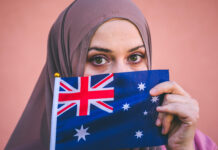Morocco has decided to ban niqabs in schools because it deems that “the dress hinders communication and obstructs the achievement of pedagogical aims.”
The Minister of Education Mohamed Hassad has sent a ministerial note to all educational establishments in Morocco, notifying headteachers on the new ban on full-faced veils in schools, reported news daily Al Ahdath Al Maghribia on October 17.
Citing sources close to the minister, the newspaper wrote that this decision stems from Hassad’s desire to “preserve the independence” of schools and its “pedagogic and intrinsic function.” The minister believes that, as the niqab hides the face of the person who wears it, it interferes with the pedagogic and communicative objectives with the students.
The Moroccan press reported that the decision comes after several female teachers were given warnings to remove the full-face cover.
Last January, Moroccan authorities warned tailors and vendors of niqabs and burqas to cease manufacturing and selling the full veil garment for security reasons.
Although the Interior Ministry has not yet commented on the ban, several vendors and tailors of the burqa in different towns and cities received verbal and written warnings to get rid of their stocks, otherwise their shops may be closed and the banned garment confiscated.
Morocco isn’t the first North African country to enforce such a dress code in its schools. Back in September, Algeria also banned the niqab and any other kind of full-face veils in its educational institutions.
Subscribe to our newsletter and stay updated on the latest news and updates from around the Muslim world!






















